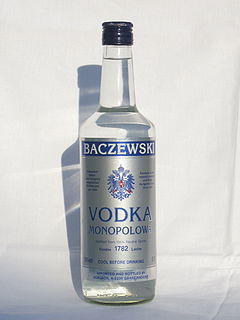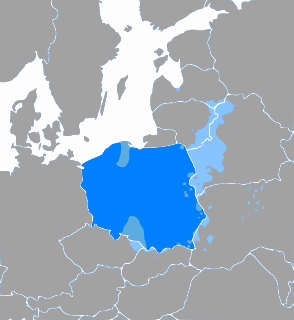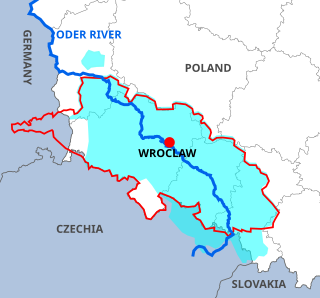
Prohibition is the act or practice of forbidding something by law; more particularly the term refers to the banning of the manufacture, storage, transportation, sale, possession, and consumption of alcoholic beverages. The word is also used to refer to a period of time during which such bans are enforced.

The temperance movement is a social movement against the consumption of alcoholic beverages. Participants in the movement typically criticize alcohol intoxication or promote complete abstinence (teetotalism), with leaders emphasizing alcohol's negative effects on health, personality, and family life. Typically the movement promotes alcohol education as well as demands new laws against the selling of alcohols, or those regulating the availability of alcohol, or those completely prohibiting it. During the 19th and early 20th centuries, the temperance movement became prominent in many countries, particularly English-speaking and Scandinavian ones, and it led to Prohibition in the United States from 1920 to 1933.

Systembolaget, colloquially known as systemet or bolaget, is a government-owned chain of liquor stores in Sweden. It is the only retail store allowed to sell alcoholic beverages that contain more than 3.5% alcohol by volume. Systembolaget also sells non-alcoholic beverages, although this product segment represents less than half a percent of the company's total sales of beverages. The minimum age to buy alcohol at Systembolaget is 20 years. At Swedish restaurants and bars the legal age to buy alcoholic beverages is 18 years, though bars and clubs may voluntarily set an age limit higher than 18 if they prefer.

The Liquor Control Board of Ontario is a Crown corporation that retails and distributes alcoholic beverages throughout the Canadian province of Ontario. It is accountable to the Ministry of Finance. It was established in 1927 on the advice of Ontario Premier Howard Ferguson, to sell liquor, wine, and beer. Such sales had been banned outright in 1916; thus, the creation of the LCBO marked an easing of the province's temperance regime. By September 2017, the LCBO was operating 651 liquor stores.
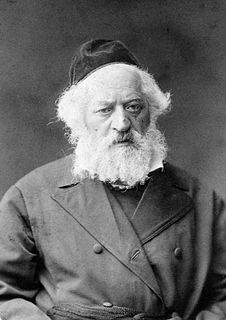
Yitzchak Elchanan Spektor was a Russian rabbi, Posek and Talmudic sage of the 19th century.

The term serf, in the sense of an unfree peasant of the Russian Empire, is the usual translation of krepostnoi krestyanin and stands for an unfree person who, unlike a slave, can be sold only with the land he or she is "attached" to. Historic legal documents of the epoch, such as Russkaya Pravda, distinguished several degrees of feudal dependency of peasants.
Prohibition in the Russian Empire and the Soviet Union existed during 1914–25. The Russian term is "сухой закон".

Alcoholic drinks in Sweden are as common as in most of the western world. Sweden is historically part of the vodka belt, with high consumption of distilled drinks and binge drinking, but during the later half of the 20th century, habits are more harmonized with western Europe, with increasing popularity of wine and weekday drinking. Wine is now also grown and produced in several parts of Sweden and the southernmost region of Skåne is turning into a hub experiencing a strong growth in number of active vineyards.

The Great Seimas of Vilnius was a major assembly held on December 4 and 5, 1905 in Vilnius, Lithuania, then part of the Russian Empire, largely inspired by the Russian Revolution of 1905. It was the first modern national congress in Lithuania and dealt primarily not with the social issues that sparked the revolution, but with national concerns. Over 2,000 participants took part in the Seimas. The assembly made the decision to demand wide political autonomy within the Russian Empire and achieve this by peaceful means. It is considered an important step towards the Act of Independence of Lithuania, adopted on February 16, 1918 by the Council of Lithuania, as the Seimas laid the groundwork for the establishment of an independent Lithuanian state.

The Russian Partition constituted the former territories of the Polish–Lithuanian Commonwealth that were invaded by the Russian Empire in the course of late-18th-century Partitions of Poland. The Russian acquisition encompassed the largest share of Poland's population, living on 463,200 km2 of land constituting the eastern and central territory of the previous commonwealth. The first partitioning led by imperial Russia took place in 1772; the next one in 1793, and the final one in 1795, resulting in Poland's elimination for the next 123 years.
AB Stumbras is the oldest and largest producer of strong alcoholic drinks in Kaunas, Lithuania. The company began operations in 1906. It is also the largest exporter of strong alcoholic beverages and one of the biggest taxpayers in Lithuania. The company's most famous brands include "Lithuanian vodka" (vodka), "999" (bitter), "Gloria" (brandy), "Stumbro Starka" (bitter), "Krupnikas" (liqueur) and "Poema" (liqueur). The company name translates as Wisent.
44 Liquormart, Inc. v. Rhode Island, 517 U.S. 484 (1996), was a United States Supreme Court case in which the Court held that a complete ban on the advertising of alcohol prices was unconstitutional under the First Amendment, and that the Twenty-first Amendment, empowering the states to regulate alcohol, did not operate to lessen other constitutional restraints of state power.
Alcohol consumption in Russia remains among the highest in the world. According to a 2011 report by the World Health Organization, annual per capita consumption of alcohol in Russia was about 15.76 litres, the fourth-highest volume in Europe. Another dangerous trait of Russian alcohol consumption pattern was the high volume of spirits compared with other alcoholic drinks.

Alcohol laws are laws in relation to the manufacture, use, being under the influence of and sale of alcohol or alcoholic beverages that contains ethanol. Common alcoholic beverages include beer, wine, and distilled spirits. The United States defines an alcoholic beverage as, "any beverage in liquid form which contains not less than one-half of one percent of alcohol by volume", but this definition varies internationally. These laws can restrict those who can produce alcohol, those who can buy it, when one can buy it, labelling and advertising, the types of alcoholic beverage that can be sold, where one can consume it, what activities are prohibited while intoxicated, and where one can buy it. In some cases, laws have even prohibited the use and sale of alcohol entirely, as with Prohibition in the United States from 1920 to 1933.
Moonshine is a generic term for distilled alcoholic beverages made throughout the globe from indigenous ingredients reflecting the customs, tastes, and raw materials for fermentation available in each region. The term commonly applies to small-scale production, which is often illegal or tightly regulated in many countries.

The Temperance movement in the United Kingdom originated as a mass movement in the 19th century. Before this, though there were diatribes published against drunkenness and excess, total abstinence from alcohol was very rarely advocated or practised. The earliest temperance societies, inspired by the Belfast professor of theology, and Presbyterian Church of Ireland minister John Edgar, who poured his stock of whiskey out of his window in 1829, concentrated their efforts on spirits rather than wine and beer. Joseph Livesey was another British temperance advocate who financed his philanthropic work with the profits attained from cheese production, following an introduction to the food product by a doctor he had consulted with regards to a serious ailment in 1816. The term teetotal is derived from a speech by Richard (Dickie) Turner, a follower of Livesey, in Preston in 1833. Livesey opened the first temperance hotel in 1833 and the next year founded the first temperance magazine, The Preston Temperance Advocate (1834–37). The British Association for the Promotion of Temperance was established by 1835.
The Central Agricultural Zone is a traditional region of Russia. Historically it was the centre of agriculture and colonisation in the seventeenth and eighteenth centuries, and was the most densely populated area of the Russian Empire. It was also the poorest. Before the emancipation of serfs, it was home to most of the Russian serf population, and later it was also the centre of the communal system, which contributed to the areas relative poverty compared to the rest of Russia.
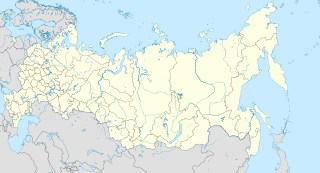
In December 2016, 78 people died in a mass methanol poisoning in Irkutsk, one of the largest cities in Siberia, Russia. Precipitated by drinking counterfeit surrogate alcohol, the death toll led the Associated Press news agency to call it "unprecedented in its scale".

